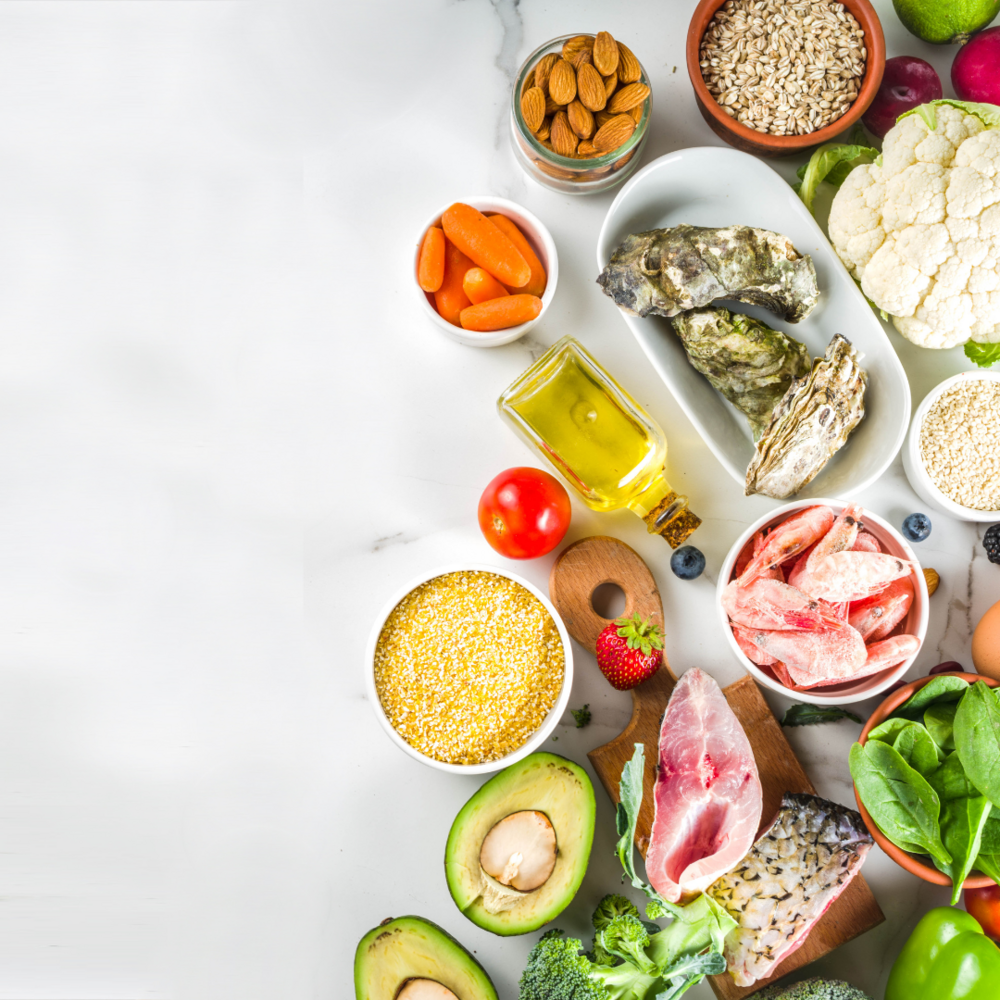Diet and Acne: What You Need to Know

posted 6th November 2023

Acne is a common skin condition that affects people of all ages, and it can be both emotionally and physically distressing.
While there are various factors that contribute to the development of acne, including genetics, hormones, and skincare routines, the role of diet in acne has been a topic of interest and debate.
This article aims to explore the relationship between diet and acne, discussing foods that may trigger breakouts and those that can promote clear skin.
The Connection Between Diet and Acne
Research on the link between diet and acne is ongoing, and while it may not be the sole cause of acne, there is evidence to suggest that diet can influence the severity and frequency of breakouts.
Several mechanisms have been proposed to explain this connection:
Inflammation: Some foods can trigger an inflammatory response in the body, which may exacerbate acne. High-glycaemic-index foods, such as sugary snacks and refined carbohydrates, can cause rapid spikes in blood sugar levels and lead to increased inflammation.
Hormonal fluctuations: Certain foods can affect hormone levels, such as insulin and androgens, which are associated with acne development. Diets high in dairy products, particularly those containing hormones and antibiotics, and foods with a high glycaemic index have been linked to hormonal fluctuations that can trigger acne.
Gut health: Emerging research suggests that the health of your gut microbiome can influence acne. A diet rich in fibre, prebiotics, and probiotics may support a healthy gut, which can, in turn, improve skin health.
Foods that May Trigger Acne
High-Glycemic-Index Foods: Foods like white bread, sugary cereals, fruit juices and pastries can cause rapid spikes in blood sugar levels, leading to increased insulin production. High insulin levels may stimulate the production of skin oils and contribute to clogged pores.
Dairy Products: Some studies suggest a link between dairy consumption and acne. Hormones present in dairy products, as well as the insulin-like growth factor (IGF-1), can influence acne development.
Sugary and Processed Foods: Sugary foods, including candies, soda, fruit juices and other high-sugar snacks, can contribute to inflammation in the body, potentially worsening acne.
Fatty and Fried Foods: Diets rich in saturated and trans fats can lead to inflammation and may be linked to acne. Fried foods, in particular, can contribute to clogged pores.
Foods that Can Promote Clear Skin
Fruits and Vegetables: A diet rich in fruits and vegetables provides essential vitamins, antioxidants, and fibre that support overall health, including skin health. The antioxidants in these foods help combat inflammation and protect against free radicals that can contribute to acne.
Omega-3 Fatty Acids: Foods like wild salmon, or other fatty fish, walnuts, and flaxseeds, which are high in omega-3 fatty acids, can have anti-inflammatory effects and may help reduce acne symptoms.
Probiotics: Consuming foods like yogurt, kefir, kimchi and sauerkraut, which contain probiotics, can promote a healthy gut microbiome, potentially improving skin health.
Whole Grains: Opt for whole grains like brown rice, quinoa, and whole wheat sourdough bread instead of refined grains to help stabilize blood sugar levels and reduce the risk of acne.
Conclusion
While the relationship between diet and acne is complex and may vary from person to person, there is evidence to suggest that certain foods can influence acne development and severity.
Adopting a balanced, whole-foods-based diet that includes plenty of fruits, vegetables, and foods that support gut health is a wise choice for anyone looking to improve their skin health.
However, it's important to consult with a health professional like a Registered Nutritionist/Nutritional Therapist who specialises in skin conditions, if you have severe or persistent acne, as they can provide personalized recommendations and therapies to manage the condition effectively.
Transform your SKIN, book your FREE 30 minute Health review today!!
References:
Bowe, W. P., & Logan, A. C. (2010). Acne vulgaris, probiotics and the gut-brain-skin axis: from anecdote to translational medicine. Beneficial Microbes, 1(3), 181-193.
Danby, F. W. (2005). Acne and milk, the diet myth, and beyond. Journal of the American Academy of Dermatology, 52(2), 360-362.
Melnik, B. C. (2012). Dietary intervention in acne: attenuation of increased mTORC1 signaling promoted by Western diet. Dermato-Endocrinology, 4(1), 20-32.












